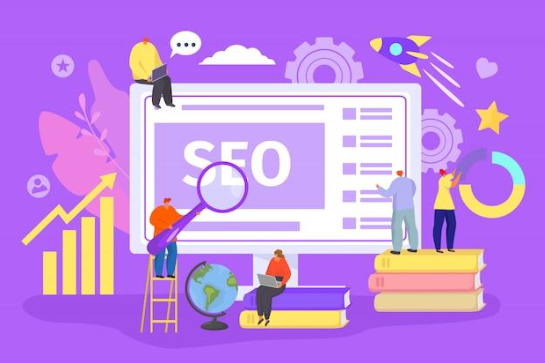The Importance of Technical SEO: Optimizing Website Speed and Performance

Keywords:
the importance of technical seo
the importance of technical skills
why is technical seo important
the importance of seo for business
why is technical support important
Users anticipate rapid satisfaction when surfing websites in today's hectic digital environment. Visitors will likely leave a website and visit one of its competitors if it loads slowly or performs poorly. Here is where technical SEO is essential. A good user experience and higher search engine rankings depend on a website's performance and optimized speed. In this blog article, we'll examine the value of technical SEO and go through practical tips for enhancing website performance.
1. Building a Fast-Loading Website
User satisfaction, engagement, and even conversion rates are all significantly influenced by website speed. Today's users need more attention spans and need immediate results. Selecting a reputable hosting company with quick servers is the first step in improving website performance. Reduce the size and quantity of files, such as graphics, scripts, and stylesheets, to lower the number of HTTP requests. Utilize browser caching to locally save regularly viewed items to speed up loading for recurring users. Enable compression methods like GZIP to minimize file sizes and accelerate transfers. Use tools like Google PageSpeed Insights to analyze website performance and find areas for improvement regularly.
2. Mobile Optimization
It is essential to optimize your website for mobile devices, given the rising popularity of smartphones and mobile surfing. Responsive web design and ensuring your website loads quickly and works properly on mobile devices are all part of mobile optimization. To reduce the impact on load times, utilize strategies like lazy loading, which holds offloading pictures until the user scrolls down and minifies CSS and JavaScript files. Make sure the mobile version of your website is simple to read and navigate and has buttons and links that are simple to click on small displays. In addition to enhancing user experience, optimizing for mobile helps your website rank higher in search results, as Google's algorithm heavily favors mobile-friendliness.
3. Website Performance Monitoring :
It's essential to continuously check the performance of your website to find and fix any problems that can slow it down. Track crucial performance indicators like website load times, bounce rates, and mobile usability using programs like Google Analytics and Google Search Console. Ensure your website functions correctly by routinely checking for broken links, out-of-date plugins or themes, and other potential issues. Conduct regular website audits to ensure all technical aspects and SEO optimization are in order on your website.
4. Optimizing Images and Multimedia Content
Images and multimedia are essential for attracting visitors and boosting your website's aesthetic appeal. They can, however, have a substantial influence on page speed if not optimized appropriately. Utilize internet optimization tools or programs like Photoshop to compress photographs to minimize file sizes without sacrificing quality. Use advanced compression methods like WebP, among the next-generation picture formats. As was noted, graphics and multimedia components can also employ lazy loading strategies to load only when the user reaches that website area. Additionally, rather than embedding movies directly on your website, put them on third-party sites like YouTube or Vimeo since they optimize video delivery.
5. Technical SEO Best-Practices
Other technical SEO techniques can improve your website's exposure, rank, speed, and performance. By grouping material into logical categories and employing descriptive URLs, you can ensure your website has a clear and crawlable site structure. Use XML sitemaps to assist search engines in quickly finding and indexing your online pages— Utilize Google Search Console to check for crawl issues regularly and repair them. Improve the internal connections on your website to make it easier for search engines to navigate it. Secure your website using SSL certificates to boost user trust and protect data transmission. Website performance and speed optimization are essential for user experience and search engine rankings. You can improve your website's search engine visibility and offer a seamless user experience by applying technical SEO best practices, such as developing a fast-loading website, optimizing for mobile, tracking performance, optimizing images and multimedia content, and adhering to technical SEO guidelines. Keep in mind that a website that is well-optimized and loads swiftly will not only engage and please users but will also draw more organic traffic and boost conversions. Please get in touch with us if you want help with technical SEO or other optimization elements. Cheers to optimizing!
Share on
Similar topics:
Similar blogs

SEO Evolution: Adapting to Search Engine Algorithms

SEO Decoded: From Algorithms to Page Rankings
Grow Your Referral and Organic Traffic
Choose a style, use sections to build pages and lastly, add your copy. It only takes a few clicks toget your site ready to go.